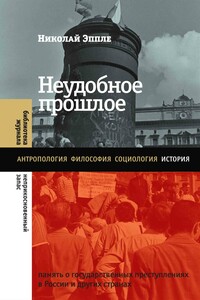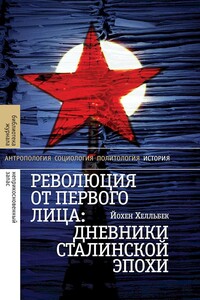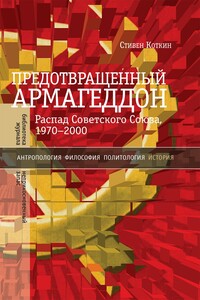Nordhaus W. D. The Climate Casino. Risk, Uncertainty and Economics for a Warming World. New Haven, London: Yale University Press, 2013.
Nordhaus W. D. Climate Clubs. The Central Role of the Social Sciences in Climate Change Policy. Debate with Michael Grubb, David W. Keith, Richard Zeckhauser, moderated by Sheila Jasanoff. Harvard University, 4 November 2015:https://vimeo.com/146673776 (дата обращения: 24.09.2016).
Norgaard K. M. Living in Denial. Climate Change, Emotions and Everyday Life. Cambridge, MA, London: MIT Press, 2011.
Oreskes N., Conway E. M. Merchants of Doubt. How a Handful of Scientists Obscured the Truth on Issues from Tobacco Smoke to Global Warming. New York: Bloomsbury Press, 2010.
Oreskes N., Conway E. M. The Collapse of Western Civilization. A View from The Future. New York: Columbia University Press, 2014.
Oreskes N. Metaphors and Warfare and the Lessons of History. Time to Revisit a Carbon Tax? // Climatic Change. 2011. Vol. 104. P. 223–230.
Osborne M., Traer M. Generation Anthropocene Is Upon Us. TEDxStanford, 20.06.2013:https://www.youtube.com/watch?v=dAozZds7FRs (дата обращения: 24.09.2016).
Papuziński A. Filozofia Raportu Brundtland // Sadowski R. F., Łepko Z. (red.). «Theoria» i «praxis» zrównoważonego rozwoju. 30 lat od ogłoszenia Raportu Brundtland. Warszawa: Towarzystwo Naukowe Franciszka Salezego, 2017. S. 127–142.
Paris Climate Agreement. 2015. United Nations Framework Convention on Climate Change:http://unfccc.int/files/essential_background/convention/application/pdf/english_paris_agreement.pdf (дата обращения: 24.11.2016).
Parliamentary Office of Science and Technology (Biuro Nauki i Technologii). Raport POST z października 2013 roku: Usuwanie gazów cieplarnianych // Infos. Biuro Analiz Sejmowych. 2014. Vol. 4 (164). S. 1–4.
Passmore J. Enwironmentalizm. Pzeł. C. Cieśliński, M. Poręba // Goodin R. E., Petit F. (red.). Przewodnik po współczesnej filozofii politycznej. Warszawa: Książka i Wiedza, 2002. S. 606–627.
Pearce W., Grundmann R., Hulme M. et al. Beyond Counting Climate Consensus // Environmental Communication. 2017. Vol. 11 (6). P. 723–730.
Pellizzoni L. Emancipation, Capture, and Rescue? On the Ontological Turn and Its Critics // Arias-Maldonado M., Trachtenberg Z. (eds.). Rethinking the Environment for the Anthropocene. Political Theory and Socionatural Relations in the New Geological Epoch. London, New York: Routledge, 2019. P. 37–55.
Perelman M. Manufacturing Discontent. The Trap of Individualism in Corporate Society. London, Ann Arbor, MI: Pluto Press, 2005.
Piątek Z. Ekofilozofia. Kraków: Wydawnictwo Uniwersytetu Jagiellońskiego, 2008.
Pimm S. L. et al. The Biodiversity of Species and Their Rates of Extinction, Distribution, and Protection // Science. 2014. Vol. 344. P. 6187.
Plumwood V. Nature in the Active Voice // Irwin R. (ed.). Climate Change and Philosophy. Transformational Possibilities. New York: Continuum, 2010. P. 32–47.
Polanyi K. Our Obsolete Market Mentality. Civilization Must Find a New Thought Pattern // Commentary. 1947. Vol. 3. P. 109–117.
Polanyi K. The Great Transformation. The Political and Economic Origins of Our Time. Boston: Beacon Press, 1957.
Popkiewicz M. Polska bez węgla // Polski węgiel. Warszawa: Wydawnictwo Krytyki Politycznej, 2015. S. 71–172.
Popkiewicz M. Świat na rozdrożu. Katowice: Wydawnictwo Sonia Draga, 2016.
Potsdam Institute for Climate Impact Research and Climate Analytics (PICIRCA). Turn Down the Heat. Confronting the New Climate Normal. Washington, DC: World Bank, 2014.
Praczyk M. Czy historia się ekologizuje? Polska historiografia współczesna wobec natury // Historyka. Studia metodologiczne. 2015. Wol. 45. S. 39–54.
Preston C. J. Beyond the End of Nature. SRM and Two Tales of Artificity for the Anthropocene // Ethics, Policy and Environment. 2012. Vol. 15 (2). P. 188–201.
Proctor J. Saving Nature in the Anthropocene // Journal of Environmental Studies and Sciences. 2013. Vol. 3. P. 83–92.
Proctor R. N. Cancer Wars. How Politics Shapes What We Know and Don’t Know about Cancer. New York: Basic Books, 1995.




